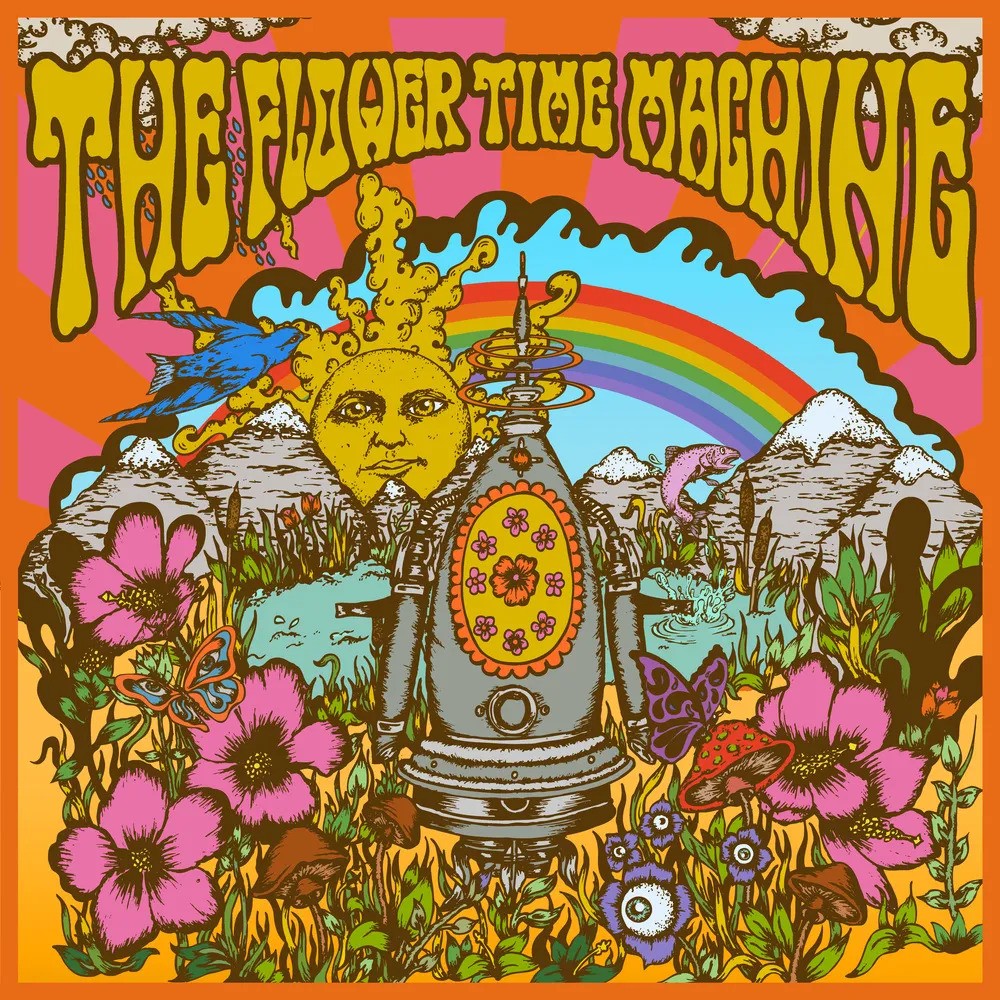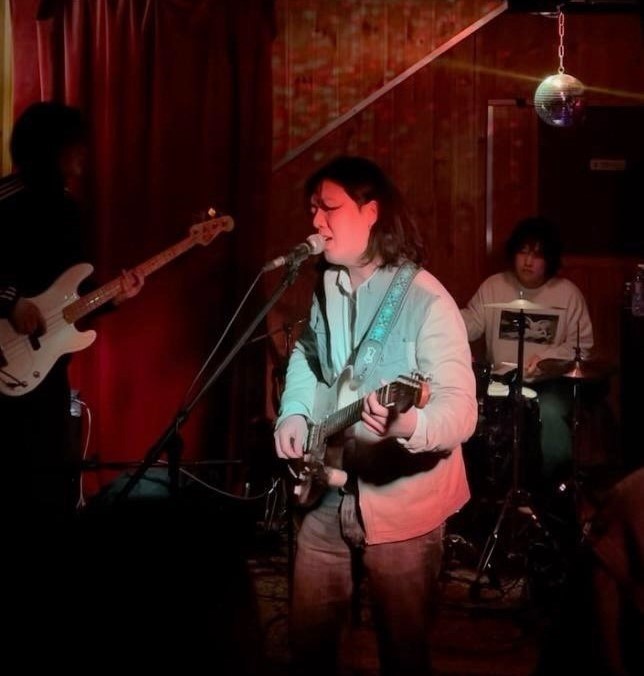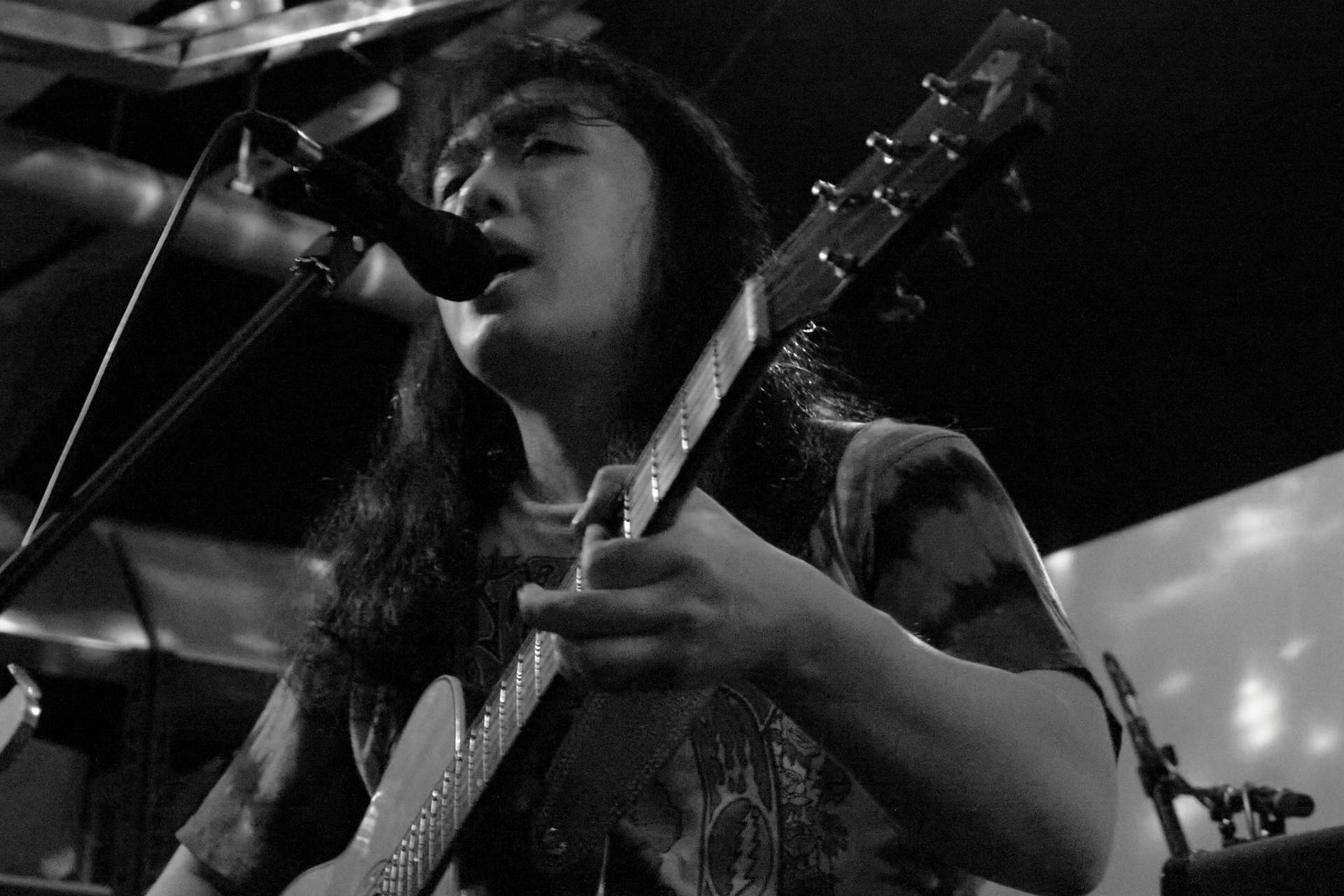Wonho and the Flower Time Machine: A Psychedelic Journey from the Heart of Seoul
Music in Korea goes far beyond the mainstream K-pop idols that might be the first association to come to your mind. Seoul is also the home to a vibrant underground community.
Closely aligned with the emergence of psychedelic, rock, and indie music scenes, it arose from a long history of subverting genres, crafting unique hybrid styles, and staying true to its message even when met with state repression. The artists of today continue on this journey, fueled by passion for their art and willingness to swim against the current. To explore their tunes in greater depth, let’s dive into the basement venues and dimly lit jazz alleys of the big city.
As I walked up the snowy hill of Haebangchon, I had no idea that a flower field awaited ahead. The show of the night featured Wonho (원호), whom I had the honor to interview, playing tranquil yet freshly energized psychedelic indie-pop. His lyrics express the universal language of heartache, free spirit, and hope. And although his music has a characteristic 70s taste reminiscent of Korean rock from this era, it channels melodies of love and peace that are not limited by time. Like the name of his first full-length album, ‘The Flower Time Machine’ suggests, Wonho’s wish was to create pure timeless music that could resonate with anyone.

“I wanted to make music that was not limited by the time period”
The theme of your latest album, ‘The Flower Time Machine,’ is musical time travel. Can you tell me a little bit more about it?
There was no particular compulsion to go back to the past. I wanted to make music that was not limited by the time period. The sound I liked and the music I listened to a lot was music from the 60s and 70s, and I was very inspired by its purity and romance. But apart from the sound, I am telling my own story as a person born in the 21st century.
The title of this album, ‘The Flower Time Machine,’ refers to a voyage towards a warm heart that has been lost. You step into a flower time machine and travel to seek it, as music plays in the garden of love and peace embroidered by nature. The theme of this album combines flowers, which symbolize love and peace in the language of hippies, with a time machine; a medium that is free from the flow of time. I hope to create music of peace that will continue to flow even when the rivers and mountains change.
What techniques do you use to create the theme of time travel?
In terms of sound, based on my music taste, I tried to use recording methods from the past and then searched for and used those instruments. To complete the songs, I proceeded with cassette tape mastering.
Psychedelic music is connected to countercultures and resistance. Is this idea present in your work?
Yes, “Resistance” is me and my idea.
I don’t like the idol industry or music that is made with extreme money in mind. In terms of system and sincerity, such music does not fit my values. I was very bored with the corporate music world. I wanted to make music that stayed true to its roots, and I thought there was always a need for music that conveyed romance and sincerity. But I didn’t want to lose popularity. I wanted music to be about honest stories and melodies about our lives and hearts that anyone could relate to and listen to, and I thought it would be nice if my story could reach people in a simple but deep way. In this era where various conflicts, discrimination, and hatred abound, I wanted to sing about a world where everything is okay. That’s why I drew a psychedelic paradise where I could escape this painful and harsh world, even though to some it may be an escape or an absurd story.
What is your inspiration for writing your songs?
I write about my life and love.
Could you share some words about the recording and producing process of your latest album?
I made demos of 40 songs and uploaded them regularly to my YouTube channel. For this album, I selected 11 of them. Except for mixing, mastering, and drum and accordion recording, the rest of the instruments were home-recorded. I stayed up all night thinking about creating a sophisticated sound that matches modern times while embodying the vintage “nostalgia” and “emotion” that I love. Then we researched and applied the recording technologies used at the time and recorded using as many old instruments as possible. However, some instruments that were difficult to obtain were recorded using virtual instruments. During the mixing process, we did not change the beat or pitch for naturalness, and the entire song was mastered using cassette tape to create a warm texture.
Which musicians and songs influenced you the most along your journey?
I listen to and like a lot of artists, but right now John Lennon and Shin Jung-Hyun come to mind.
What are your plans for the future?
We are planning to create a new synthesizer electronic music album inspired by the sounds of the 80s.

If you consider stepping into the Time Machine, feel free to dive straight into the longest song on the album, ‘Spring Rain.’ In Wonho’s words, the song tells the story of how he endured various difficult things in his life. Its message is that one must find the strength to move on even when the world gets harsh, our loved ones leave, and things don’t go as planned. And as the spring rain falls, soft strums lead a warm buildup to the road that ends with a rainbow.
Dorota Olsavska
Interview translated from Korean by the author and a machine




